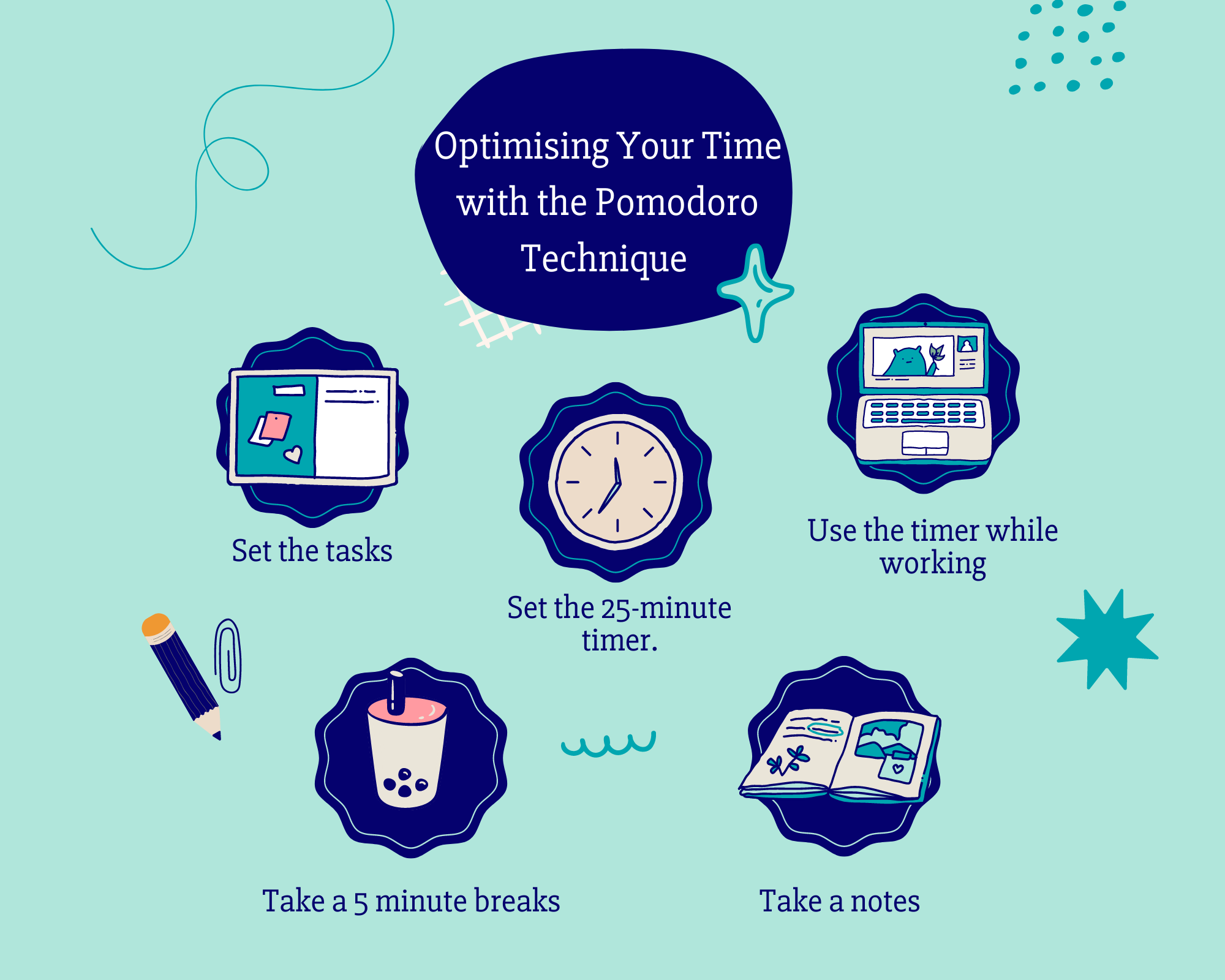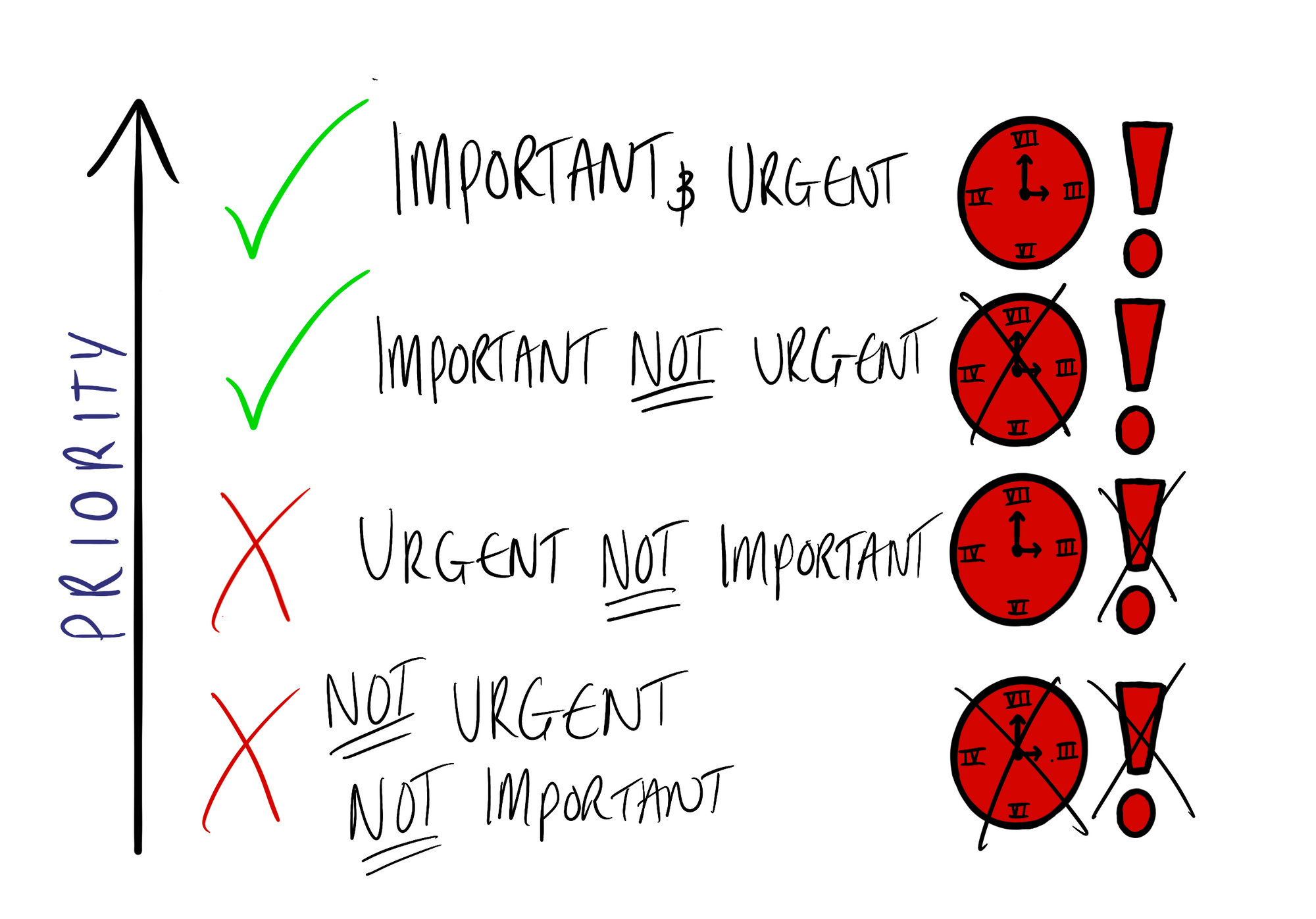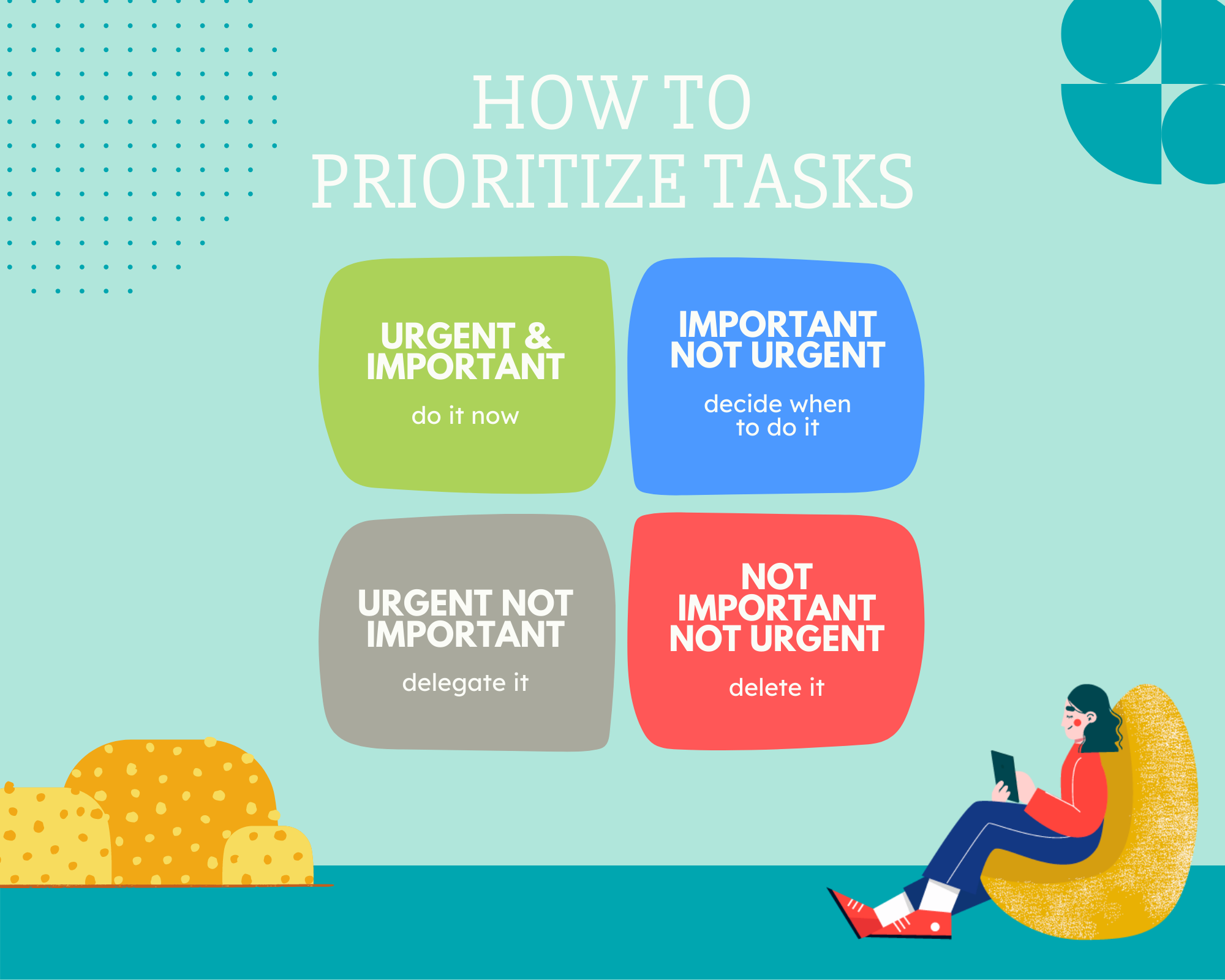It can be tough to focus on schoolwork or a job when there are so many distractions around us - trust me, I know. The average person checks their phone 150 times a day, and that's not counting all of the other distractions we face each day.
It's a common misconception that time management is just for busy executives or entrepreneurs. In reality, time management is for everyone - no matter what your occupation or lifestyle may be. Whether you're in school, working a full-time job, and trying to maintain a social life, time management is key to balancing it all successfully. In this blog post, we'll discuss time management tips specifically for apprentices, undergraduates and postgraduates.
This post covers......
Pomodoro Technique

The Pomodoro Technique is a time management strategy that can help you focus on your work and get more done in less time. This technique breaks down your workday into 25-minute intervals called pomodoros, with 5-minute breaks in between each interval. By using this technique, you'll be able to stay focused and avoid distractions - it's been proven to improve productivity and creativitity!
Here's how to use the Pomodoro Technique:
1. Choose a task that you want to focus on.
2. Set a timer for 25 minutes and start working on the task.
3. When the timer goes off, take a 5-minute break - Make sure you move about, don't stay in the same space!
4. Repeat this process until you've completed 4 pomodoros, there's two hours gone!
Remember, you can work for more than 2 hours, however I'd advice to take a break inbetween or even switch tasks!
If you're interested in customising the Pomodoro Technique to suit your needs, check out this blog post:

Eisenhower's Urgent and Important Principle

Yes, another principle! As you know time is precious and time management can help us make the most of it. The Eisenhower box also known as the urgent-important matrix, helps me to prioritise tasks that are time sensitive, but not necessarily important. It's a great time management tool to use if you have trouble deciding which task to focus on first .
The matrix is simple:

Now, what do you do with this information? Well, that's up to you! You can either:
- Complete the urgent and important tasks first, then move on to the other tasks.
2. Start with the most important task and work your way down to the urgent tasks.
3. Tackle the easiest tasks first and build up momentum as you move to the more time-consuming tasks.
Get Organised!

In theory, it sounds simple, but I've found in application - it can be slightly trickier. The best way to start is by making a list of the tasks you need to do. Put time estimates next to each task, and don't forget to account for time getting distracted by friends, family or even a Netflix binge.
Once you have time estimates for each task, time management becomes a lot easier. If you are struggling to get something finished in time and need help, don't be afraid to ask your friends or peers.
Staying organised is a lot easier when you try to anticipate what will be coming up next. At first, the task may seem cumbersome and maybe even pointless, but I promise you - the better the plan, the easier the task.
For example, at the start of the university year, I like to list all my assignments, their deadlines, and their grade weighting, I then know where the 'crunch' points will be.
Delegate Tasks

One way to manage time is to delegate tasks - of course, this might not always work, sometimes, unfortunately, we have to do the tasks ourselves. After all, sometimes it's easier and better to get someone else to do a task. This means that you should not try to do everything yourself. You can ask others for help, whether it is family, friends or classmates. This will free up time for you to focus on the things that are most important.
You may be wondering how this works if your job is time consuming. One way to deal with this is to have a meeting with your boss and discuss your issues, you could even suggest what could be delegated to others.
Take Breaks to Avoid Burnout

In order to best manage your time, it's important to take breaks. This will help avoid burnout and keep you energised and motivated. Try to avoid doing a task for so long that you burn out. Make sure to take time for yourself, even if it's just 10 or 15 minutes a day, but, of course, feel free to take longer! During this time, you can do something relaxing, like reading, listening to music, taking a walk, or whatever you enjoy! You can also use this time to think about how you're going to tackle the upcoming tasks on your list (if you really want to, but don't feel obliged). This time is for you, and it's important that you take time away from your busy schedule to give yourself a break - at least try to relax!
If there are people who depend on you or who help out with work, make sure they know when you'll be taking time off and for how long. This will help them plan around your time off so that there's as little disruption as possible. For example, if you have a job in the middle of your time at university and you're working on an important project with other people, it's best to let them know that time off is coming soon so they can prepare themselves. They may need time to adjust their schedules.
Don't Procrastinate

Every now and again, everyone loves a good procrastination, however, too much procrastination will inevitably lead to time management issues. When you're working on a task, make sure to set deadlines for yourself and stick to them. This will help avoid putting things off until the last minute. Being completely honest, I've never seen high-quality work that has been left to the last minute. If something comes up that takes you away from your work, try to get back to it as soon as possible so you don't fall too far behind schedule. I always leave a 'buffer' in my schedule just in case I need the time to reschedule. However, if time is running out, you may need to just get on with it! It's now or never!
It's also important to make sure that time isn't being wasted anywhere else in your life. Take some time each day just before bed and think about how long everything took from start to finish - did you accurately predict how long the tasks will take?
Pretend Your Time is Money

Time is precious, and it's something that we can't get back once it's gone. One way to think about time management is to pretend your time is money. This will help you to maximise your time and treat it like a budget.
There are a few ways that you can do this. One is to break down your time into blocks. For example, set aside one hour for studying, 30 minutes for working on a project and 15 minutes for checking social media.
Another way to use time management skills is by setting goals. If you want to read more books this year, set a time limit for it. You might decide that you will read one book every two weeks or so. This will force you to make time for it and stick to your goal - very much like a budget.
Lastly, treat yourself as if you were your own boss at work. Set deadlines and put in the time necessary to meet them each day. Tell yourself that you will take a break after you finish a task or work for a certain amount of time. This will help to keep you on track and motivated.
Learn to Say NO!

One of the most important time management skills you need to learn is how to say no. When you're juggling school, work and a social life, it can be tough to find time for everything. And when someone asks you to do something that's not on your agenda, it can be hard to say no. But learning how to politely say no is an essential time management skill.
Here are a few tips for saying no:
- Be polite and respectful. Even if you don't want to do something, be respectful when you say no.
- Explain why you can't do it. If someone asks you to do something last minute, explain that you're already busy and can't take time out of your day.
- Offer alternative time frames. If someone asks you to do something on a time that doesn't work with your schedule, offer other time slots when you're available.
- Don't feel guilty about saying no!
Remember - You're not obligated to do anything you don't want to.
Be Critical of Yourself

I've found one of the best time management techniques is to be critical of yourself. This means that you should take a step back and analyse how you spend your time. Are you working efficiently? Could you be doing things better?
Start by creating a time log for a week. Write down everything you do, from the time you wake up to the time you go to bed. This will help you see where your time is going. You might be surprised at how much time you spend on things that don’t matter.
After creating a time log, it’s time to start making changes. Identify the areas of your life where you need to make improvements and make a plan to do so. If you need to work more efficiently, try using like timers and calendars.
It’s also important to be realistic about what you can achieve. Don’t try to cram too many things into your day – this is a recipe for disaster! Instead, focus on one or two things that you want to do and make time for them.
For example, if you want to spend time with your family in the evening but also need time for study, set aside an hour of time each day when everyone else is busy doing something else. Then focus on spending time with them during this period!
Keep your time log going for at least a month so that you can see how much time you’re spending on different activities and if there are any patterns in your behaviour. This will help you identify where improvements need to be made! If not don't worry there's time management apps available that can help.
Conclusion
Time management is an important skill for everyone, regardless of their age or stage in life. By using the techniques discussed in this blog post, you can start to take control of your time and achieve more!
Managing your time is important at any age, but it’s especially crucial when you’re studying. With so much to learn and so many distractions, it can be difficult to stay on track. But with the right tools and a little bit of planning, you can make the most of your time. I hope these tips have been helpful for you. If you need more advice or want to chat about time management strategies, don’t hesitate to reach out. I'm always happy to help!








